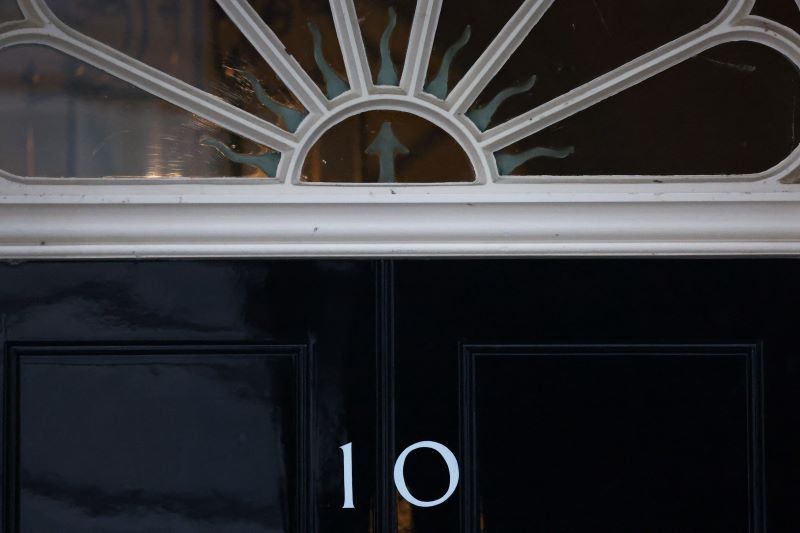Comment: Revitalised global leadership from Britain can make a difference at a deeply troubling and fractured time for world affairs
Edward Davey is head of the World Resources Institute Europe UK Office.
In three vital and interrelated areas – climate, development and nature – the next UK government could play a significant role in driving progress at a critical time.
It needs to start office on day one with a plan that positions the UK ahead of key summits on those issues – summits that will have a critical bearing on people, planet, and future generations. The time to start preparing is now.
The NATO summit begins within days of the UK general election now planned for July 4. The year ends with G20 meetings in Brazil, a global biodiversity summit (COP16) in Colombia, and the COP29 climate conference in Azerbaijan. A new UK government could play an important role in rebuilding trust and make a positive contribution to the world by adopting far-sighted positions on climate, development and nature.
On climate, the next government could immediately signal its intent by comprehensively stepping up its efforts to meet its own national climate commitments, after a period of drift and uncertainty. There is no more powerful message from the UK to the cause of global climate action than the country decisively implementing its own pledges, through concerted action on green energy, transport, infrastructure and land use.
Progress at home needs to be matched in real time by leadership on the international stage in negotiating an appropriately ambitious and credible ‘new collective quantified goal’ on climate finance.
Rich nations meet $100bn climate finance goal – two years late
A strong finance outcome at COP29 would acknowledge the historic responsibility for climate change from some of the wealthiest nations, including the UK, while ensuring that all countries play their full part in mobilising the flows of public as well as private finance needed to transition to a 1.5 degree-aligned, resilient and nature-positive economy. Successful resolution of the finance negotiations this year in Baku would open up the possibility for a more ambitious round of climate action en route to COP30 in Belem, Brazil in November 2025.
Development finance
On international development, the UK can move fast by upholding and restoring its development finance commitments, including to some of the world’s poorest people; by updating its toolkit to meet today’s interlinked development, climate and nature challenges; and by using all of the means at its disposal (including debt relief, multilateral development bank reform, and capital increases) to drive global financial architecture reform and a successful replenishment of the International Development Association 21 later this year.
The UK can also lead the way in pressing for international support to be integrated and aligned behind countries’ own inclusive, green development plans; and by making the case for multilateral trade reform aligned with the Sustainable Development Goals and the Paris Agreement.
In addition, the UK has a particular responsibility to resume a global leadership role on debt relief, a role it last played in the early 2000s during the era of former Prime Minister Gordon Brown. It could take legal and other action to unstick debt cancellation processes for some of the most indebted countries, by bringing private creditors to the table and brokering concerted action on debt relief at the G20.
Global billionaires tax to fight climate change, hunger rises up political agenda
The UK should lend its political support to the Brazilian government’s laudable G20 initiative on tax reform, as well as its important work on climate and hunger; and support other promising efforts to raise revenue for development, such as levies on shipping and aviation. The next finance minister should consider the UK’s global role on these issues as being as centrally important to their legacy as issues of national economics; and ensure that the UK drives global progress on new flows of finance for climate and development, at the scale set out by economists Nick Stern and Vera Songwe in their 2022 report.
Protect and restore nature
On nature, the UK should redouble its actions to protect and restore nature and biodiversity at home, including through pursuing more sustainable farming and land management. At the same time, the UK should use its influence and finance to drive global progress on the nature agenda, both in terrestrial ecosystems as well as the ocean. The goal here is to protect at least 30% of the planet by 2030 and to mobilise major flows of public and private finance to support countries, local communities and Indigenous Peoples to protect their ecosystems.
At the UN biodiversity conference in Colombia in October, the UK could assume a critical role on the global stage by making the case for the protection and restoration of natural ecosystems as fundamental to human life, to addressing the climate crisis, and as one of the most effective forms of pro-poor development assistance.
At a deeply troubling and fractured time in multilateral affairs, revitalised global leadership from the next UK government on climate, development and nature could make a very constructive contribution to securing the better, fairer, more sustainable and more peaceful world which is still within our grasp to secure.
Editor’s note: The latest BBC analysis of opinion polls ahead of the July 4 general election in the UK shows the opposition Labour Party with 45% of voter support, while the ruling Conservative Party trails with 24%.

